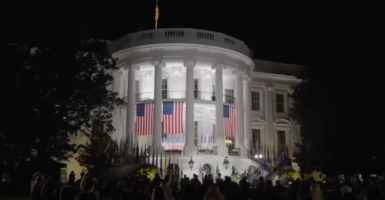District Racially Segregating Staff For Events To Promote Equity?
Documents reveal that a school district was racially segregating teachers for "affinity groups" to promote equity.

In accordance with the progressive crusade to stop racism, by judging everyone by the color of their skin, The District of Columbia Public Schools (DCPS) has divided teachers up by race at least once a month for “affinity group” events. Black, Latino, Asian, Native American, LGBTQIA+, multi-racial, and white staff have become accustomed to segregating from each other in the name of “equity.” The district claims that this is for community-building efforts, but many are criticizing the move as dividing people up is rarely known to create unity.
Judicial Watch obtained documents with information regarding these equity groups via a Freedom of Information Act request. What was revealed led the watchdog group to accuse the district of violating federal law. The information was given to Fox News and now families and educators across the nation are debating on whether this is a healthy, legal process.
In these equity documents, the DCPS commits to “anti-racist” rhetoric — which claims that not being racist isn’t enough to be a valuable member of a community, one must become an activist. They claim that the point of the groups is to combat racism and “white supremacy.” No known cases of racially charged, white-on-minority crimes within the district are cited, which leads many to believe that this is in response to sensationalized media reports of isolated incidents.
Despite the fact that some are upset that any school would racial divide teachers for “equity” or any other purpose, whether or not the law was violated is yet to be determined. It is unclear whether teachers were required to join these groups or if they attended meetings voluntarily. It is also worth noting that the “affinity groups” were asked to come together as a whole and discuss what they have learned and expressed. By doing so, this seems more like group work endeavors which organize select members of the community and then allow them to present their findings to each other.
Affinity groups, in general, have been active on college campuses for years, but never have they focused so much on race for the sake of “diversity, equity, and inclusion.” Many teachers and school staff members are proud to help students segregate themselves. It is seen as a modern method to combat “racism,” but some have argued that these groups do nothing more than reaffirm stereotypes and further racial barriers.
At Trinity College, they have a long list of “equity” centered affinity groups. There is one for black staff members, LGBTQI+ staff, and Asian staff, but also one for crafts and teachers in the arts. Unfortunately, there is also a group called, “Unpacking My Whiteness.” The term “whiteness” has become a common Critical Race Theory slur that describes the “harmful” cultural behaviors of white people. It seems as if white students and teachers are the only ones who have groups to “reeducate” them on how to stop being too culturally themselves at this school.

Other colleges are displaying the same model to achieve equity. Affinity groups supporting minorities who racially segregate are everywhere, but ones for white people are often focused on “Decentering Whiteness,” or making white people less white. If any of these groups told black people to be less black, or Hispanics to be less hispanic, there would be outrage, but attacking white people for their heritage, culture, and mannerisms is so commonplace now that schools across the nation continue to perpetuate unfair stereotypes and ever discriminate against white people in the name of “anti-racism.”
The DCPS did not respond for comment. The President of Judicial Watch claims that these race-based affinity groups violate Title VI of the Civil Rights Act, which criminalizes racial discrimination and discrimination based on color or heritage. Concerns over the public education system’s use of taxpayer dollars to discriminate against teachers and/or students based on their race, color, or heritage have become serious in recent years as more and more situations like this become issues in American schools.



